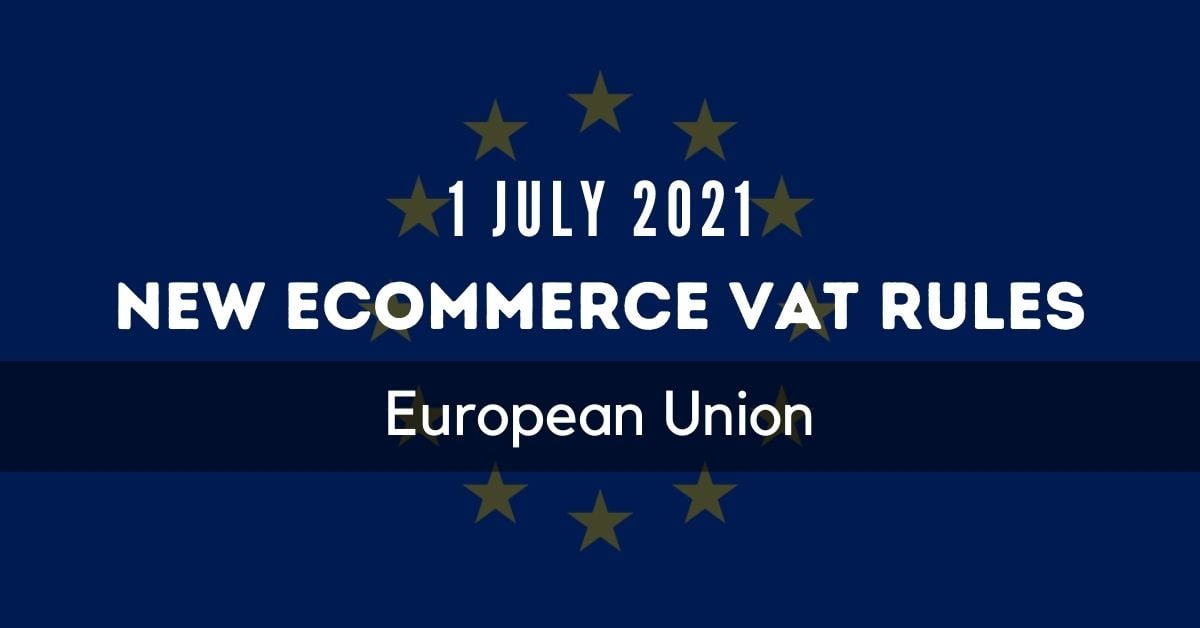Beginning on 1 July 2021, the European Union (EU) will implement a new EU-wide eCommerce threshold of €10,000 for distance sales of goods to consumers in other EU Member States and remove the VAT exemption for commercial goods under €22 imported into the EU.
Above the new singular threshold, online sellers will be liable for VAT in the Member State where their buyers are located; this way, the new rules ensure that “VAT is paid where consumption of goods takes place.” And with the VAT exemption abolished, all products imported into the EU will be subject to VAT.
The new rules are meant to “overcome the barriers to cross-border online sales and address challenges arising from the VAT regimes for distance sales of goods and for the importation of low value consignments,” according to the European Commission department for Taxation and the Customs Union.
Currently, each Member State has its own threshold set for this purpose, and businesses involved in distance selling of goods to buyers in other EU Member States need to register separately in each Member State where they go beyond that threshold. With the new rules, there will be a single threshold in all of the EU and businesses no longer need to register in individual Member States if they register for the special scheme called OSS.
The process of filing VAT is simplified by the introduction of the VAT One-Stop Shop (OSS), where eCommerce businesses can make all the VAT declarations and payments due in other Member States. Registration in one Member State is enough to conduct business in the whole EU.
In the new tax scheme, eCommerce platforms and marketplaces are categorized as electronic interfaces. And for VAT purposes, they may be deemed suppliers if the underlying supplier/seller is from outside the EU. As such, they are deemed “to have received and supplied the goods themselves” and thus have an obligation to account for VAT for their sales. This also entails some record-keeping obligations.
To facilitate VAT declaration and payment related to online sales of imported goods below €150, a new online portal was created and can be used by businesses when the new rules take effect. The Import One-Stop Shop (IOSS) will simplify the collection, declaration, and payment of VAT for eCommerce businesses. The new system will also make the process more straightforward for the customers in the EU as VAT will be charged during purchase—hence, no unexpected holding of goods at customs because of unpaid VAT or additional customs clearance fees.
Compliance with the new EU VAT rules surely entails additional work for online businesses. But there’s good news—if you are using Magento for your eCommerce store, you can comply with these new rules without issues because Magento supports the changes you need to implement with its out-of-the-box tax configuration options. You can set dynamic tax rates depending on your buyer’s location, following the VAT rate applicable in the EU Member State where the goods will be delivered.
And if you want an even easier way to get everything set up, you can opt for an automated solution like Avalara, for which you can install an extension from the Magento Marketplace.
For more information on how the new rules on VAT for eCommerce may affect your business, visit the European Commission information page.
Want to learn more about how Magento can be the best solution for your eCommerce business? We can’t wait to tell you! Send us a message and our expert Magento team will get in touch with you.



Share on: